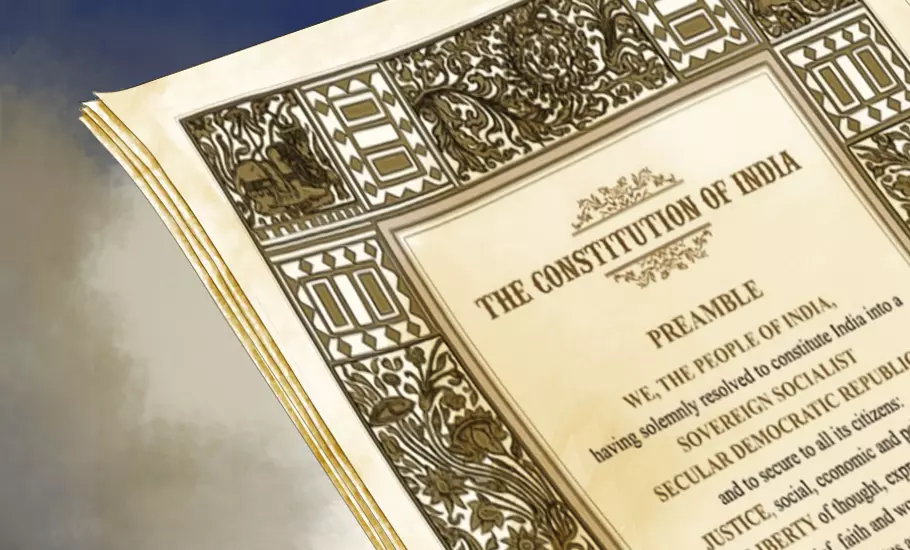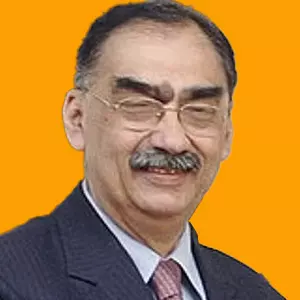
- Home
- India
- World
- Premium
- THE FEDERAL SPECIAL
- Analysis
- States
- Perspective
- Videos
- Sports
- Education
- Entertainment
- Elections
- Features
- Health
- Business
- Series
- In memoriam: Sheikh Mujibur Rahman
- Bishnoi's Men
- NEET TANGLE
- Economy Series
- Earth Day
- Kashmir’s Frozen Turbulence
- India@75
- The legend of Ramjanmabhoomi
- Liberalisation@30
- How to tame a dragon
- Celebrating biodiversity
- Farm Matters
- 50 days of solitude
- Bringing Migrants Home
- Budget 2020
- Jharkhand Votes
- The Federal Investigates
- The Federal Impact
- Vanishing Sand
- Gandhi @ 150
- Andhra Today
- Field report
- Operation Gulmarg
- Pandemic @1 Mn in India
- The Federal Year-End
- The Zero Year
- Science
- Brand studio
- Newsletter
- Elections 2024
- Events
- Home
- IndiaIndia
- World
- Analysis
- StatesStates
- PerspectivePerspective
- VideosVideos
- Sports
- Education
- Entertainment
- ElectionsElections
- Features
- Health
- BusinessBusiness
- Premium
- Loading...
Premium - Events

It can be argued that changes to the Preamble were not necessary, but their removal will add to the issues and controversies already rampant in these contentious times
While releasing a book on the Emergency on June 26, RSS general secretary Dattatreya Hosabale raised the issue of the changes made in the Constitution’s Preamble as part of the 42nd amendment in December 1976. He noted that the words 'socialist' and 'secular' were added to the Preamble. He called for a consideration if these words should remain in the Preamble. Thus, Hosabale implied that the earlier formulation “WE, THE PEOPLE OF INDIA, having solemnly resolved to constitute India into a SOVEREIGN DEMOCRATIC REPUBLIC and to secure to all its citizens”: should be restored and the words Socialist and Secular put in between Sovereign and Democratic should be dropped.
Also read: Constitution’s Preamble was changed during emergency: Dhankhar
Hosabale’s reference to these additions in the Preamble was not new. They have been raised from time to time by various leaders of right-wing formations. Some of them have asserted that these are Western concepts; thereby, implying that they should be shunned in the Constitution’s text. The matter to rescind these changes has been agitated before the superior courts. The courts have not entertained these petitions.
Word 'integrity' added in Preamble
It is noteworthy that in addition to these two words, another word ‘integrity’ was also added in the Preamble. Thus, whereas the original formulation was “FRATERNITY assuring the dignity of the individual and the unity of the Nation”, the words “and integrity” were added between “unity and of”. The amended portion now states “Fraternity assuring the dignity of the individual and the unity and integrity of the Nation”. Some persons have mentioned the addition of “integrity” but this has not been as controversial as “Socialist and Secular”.
Also read: SC junks pleas challenging inclusion of ‘socialist’, ‘secular’ in Preamble
The Jan Sangh was a constituent of the Janata Party which came to power after Prime Minister Indira Gandhi’s defeat in March 1977. Many of the provisions introduced by the 42nd amendment were undone by the 44th amendment but the changes in the Preamble were not touched. The obvious reason was that these changes resonated with the left-of-the-centre ideology of some of the principal partners of the Janata Party. Besides, and more importantly, they sought to encapsulate the contents and spirit of some of the essential features of the Constitution. These features are part of the founding document’s basic structure and are therefore immune from amendments. Indeed, as they are part of the Constitution, it can be argued that changes to the Preamble were not necessary. However, given that they have remained unchanged for about 50 years, should it now be a national priority to focus on them? This is especially so at a time when the country faces an extremely challenging external security environment and the Narendra Modi government is focused on economic development. It is perhaps because of these considerations that Prime Minister Narendra Modi has not spoken on this issue, at least, till now.
VP Dhankhar wades into Preamble issue
However, the restraint he has shown has not deterred Vice President Jagdeep Dhankhar from wading into the matter. He did so in his characteristically irrepressible manner. Urging on June 28 “for all of us to engage in discourse, dialogue, debate upon the essence and spirit of the Indian Constitution” the Vice President went on to say “The Preamble of any Constitution is its soul. The Preamble of Indian Constitution is unique. The Preamble has been imparted by we, the people of India. Friends, except Bharat, nobody's Constitution's Preamble has undergone change”.
Also read: Secularism not a western import, but part of Constitution’s basic structure: SC
I have already conceded that it was unnecessary to insert the words that were added to the Preamble by the 42nd amendment, but the fact that no political party has seriously advocated their deletion implies that their removal will be worse than their addition. This is because an attempt to do so will add to the controversies already rampant in our contentious times. Perhaps the holder of the nation’s second-highest constitutional office should reflect on this aspect.
The Vice President laments “First, we change something which is not changeable, alterable. Something that emanates from ‘we the people’ and then you change it during the Emergency, where we the people were bleeding in heart, in soul”. He also thereafter quotes various eminent past judges of the Supreme Court who have written or spoken eloquently on the significance of a Preamble in a Constitution, including in the Indian Constitution. There can be no quarrel with the Vice President’s words on the Emergency. Whatever the Congress party may say it was a dark period and it was imposed for dubious purposes. The results of the March 1977 elections show what the majority of the people thought of the Emergency. The fact that the people brought back Indira Gandhi to office in the December 1979 elections cannot detract from how much they detested the Emergency. Notwithstanding all this, what the Vice President does not reflect on are the reasons which led to the retention of the changes in the Preamble; why did the 44th amendment simply go back to the original text of the Preamble?
Constitution is inherently socialistic
The fact is that the leaders of the Freedom Movement were committed not only to the attainment of political independence but also to the transformation of India from a feudal and hierarchical society, which had visited great sorrow and discrimination on millions because of reasons of birth, into an egalitarian society and democratic polity. It is for this reason that the princely order and the zamindari system had to go. It is also for this reason that the Constitution decreed that there will be equitable distribution of wealth and income and asked the state to pursue policies to attain this. The structure of these policies in their entirety was adopted by the Congress in 1956 when it said that the country would aim for a pattern of social order which would be ‘socialistic’. It may be contented that the policies adopted were wrong but certainly, the Constitution is inherently socialistic in letter and spirit.
It is also secular because it decrees that the state would not discriminate on grounds of faith and religion. It is true that Indian secularism is vastly different from the concept as it evolved in the West where it meant a separation of Church and State. In India, it became ‘equal respect for all religions’ and a special dispensation for religious minorities to order their lives within the limits set out by the Constitution. The Constitution makers perhaps did not contemplate that political parties will mobilise supporters on a religious basis. Perhaps, if they had they would have expressly forbidden that in the Constitutional text itself.
Finally, one last thought on the use of this formulation by the Vice President for the changes in the Preamble “The change also, friends, militates against our civilisational ethos of thousands of years, where Sanatana philosophy, its spirit, and essence dominated the discourse”. It is extremely dangerous to link Santana philosophy which is fundamentally spiritual in nature to the Constitution which seeks to focus on the political and socio-economic regeneration of India. That can lead to great and unnecessary controversies in the political and socio-economic realm. And, will the Vice President ponder over the question of why Dr. B R Ambedkar himself repudiated Sanatana philosophy and embraced the path of Gautam Buddha. I would only caution him that a vast number of Buddhists find it offensive to be considered as the followers of Sanatana philosophy even if Buddhism’s origin and growth were in the Indic tradition.
The Preamble controversy should be laid to rest. That would be in the national interest.
(The Federal seeks to present views and opinions from all sides of the spectrum. The information, ideas or opinions in the articles are of the author and do not necessarily reflect the views of The Federal.)


